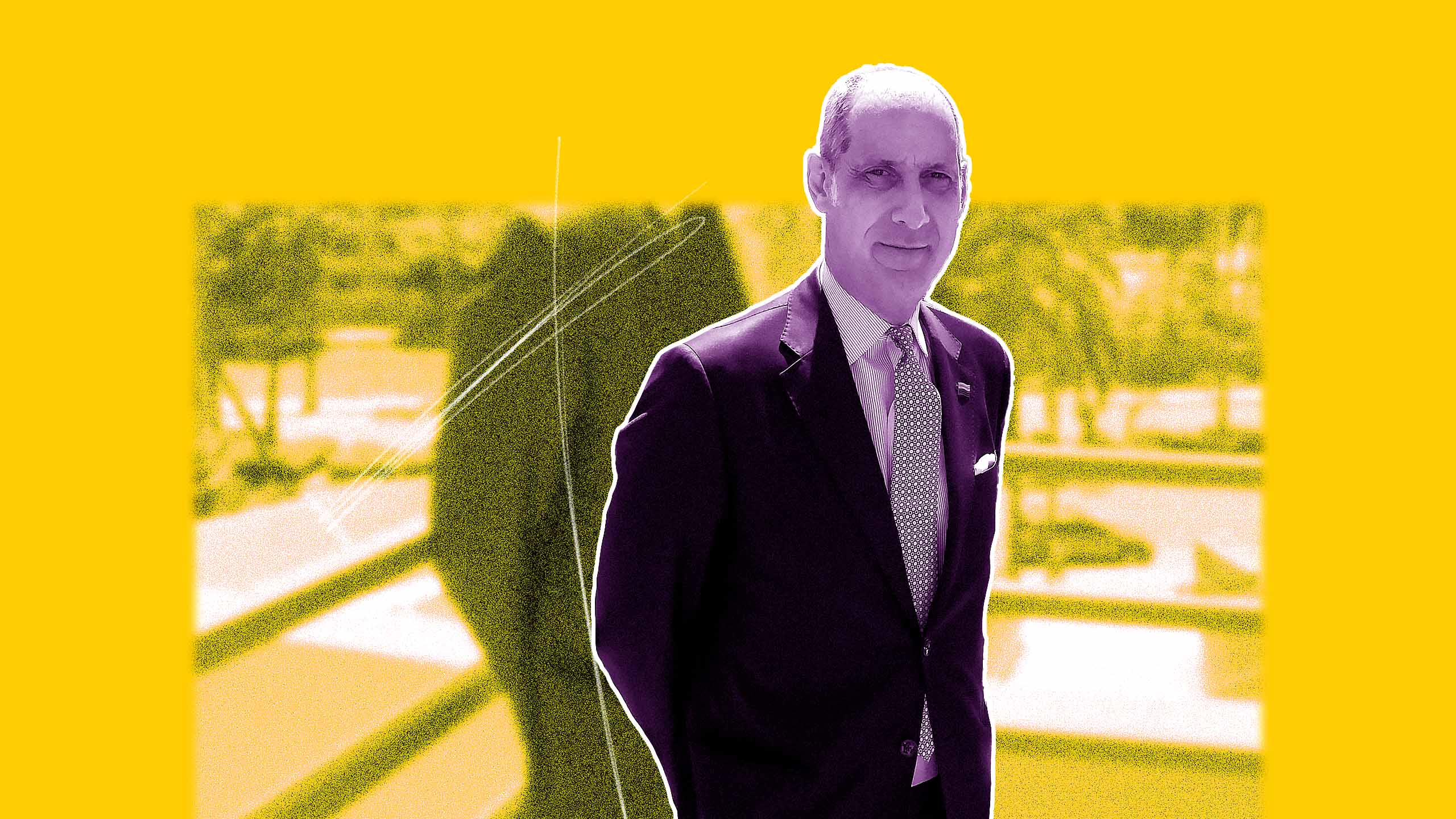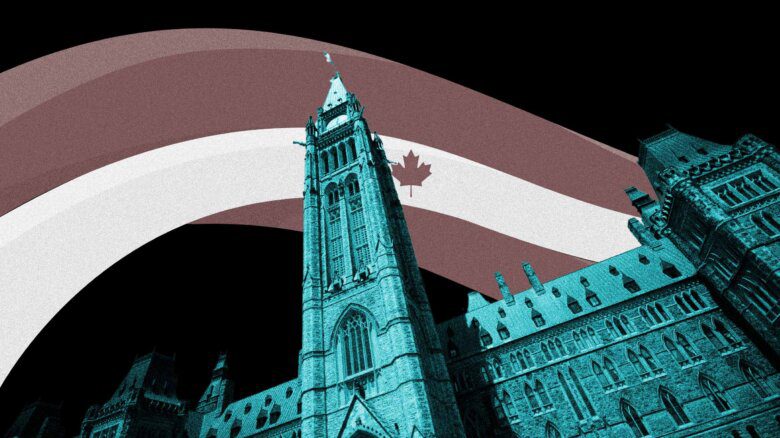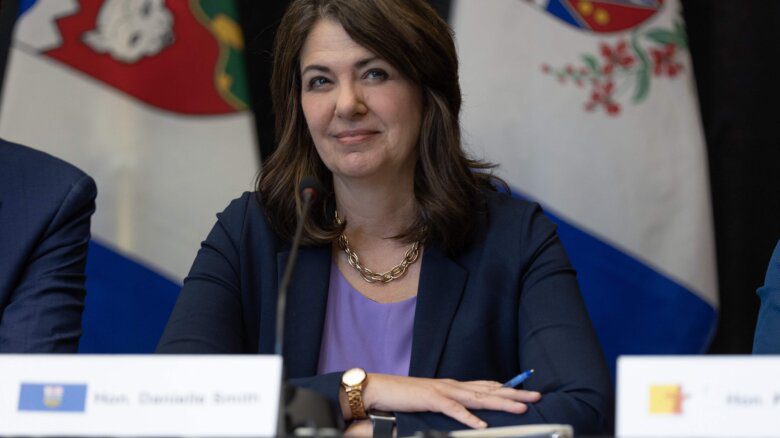In November 2021, the Italian government took an unusual step in appointing longtime diplomat Fabrizio Petri as the country’s first special envoy for the human rights of LGBTQ+ people.
The move was surprising because Italy was only the third country in the world to appoint someone to a diplomatic post dedicated to LGBTQ+ rights (after the United Kingdom in May 2021 and the United States in June 2021) and because Italy is far from the vanguard when it comes to championing LGBTQ+ rights domestically. Nevertheless, over the past six months, Petri says he has built up considerable goodwill for LGBTQ+ rights both abroad and domestically, in what could be a model for other countries to follow.
“When a structure decides to make a focus on a matter like this … it changes things,” Petri tells Xtra in an interview. “I can help start a new dynamic.”
Many national governments appoint special envoys to take the lead on specific issue areas in foreign policy that are priorities for the country. The U.S., U.K. and European Union all have special envoys for religious freedom, for example, while Canada has a special envoy for combatting anti-Semitism.
So what does a special envoy for the human rights of LGBTQ+ people do? The tasks of such a position, and what they might achieve, is still nebulous.
Jessica Stern, U.S. Special Envoy to Advance the Human Rights of Lesbian, Gay, Bisexual, Transgender, Queer and Intersex (LGBTQI+) Persons, has been specifically tasked with spearheading the implementation of President Joe Biden’s memorandum on LGBTQ+ human rights around the world, including advancing decriminalization of gay sex, protecting queer refugees and responding to human rights abuses. Prior to joining the State Department, she was executive director of OutRight Action International, a global LGBTQI+ human rights organization. In May, Stern attended a Global Interfaith Network conference in California and spoke out about how religious rights should not lead to the violation of the rights of others. “Faith is used to justify violence against LGBTI people. That never made sense to me,” she told attendees.
The role of Nick Herbert, the U.K. Prime Minister’s Special Envoy on LGBT Rights, is less clearly defined. A press release on his appointment said Herbert, who was a Conservative MP and now sits in the House of Lords, would be “focusing on progressing legislative reform, tackling violence and discrimination and ensuring equal access to public services for LGBT people.” He was also meant to lead the U.K. government’s global LGBT+ conference, which was cancelled amid boycotts from domestic queer groups over the U.K. government’s own hostility to trans rights issues.
For Petri, an openly gay civil servant, the role has so far been split between direct advocacy work and directing support and financial aid to queer community groups abroad so they can meet their goals and grow.
“Italy has one of the biggest networks of embassies and consulates. We have a huge network because of the importance we give to diplomacy.”
He declines to name specific countries where he’s working to improve conditions for LGBTQ+ people. But he has been working on building bridges with government officials, international organizations and civil society groups in Washington, Madrid, Vienna and Buenos Aires. Most recently, he was at the International Lesbian, Gay, Bisexual, Trans and Intersex Association conference in Los Angeles, where Xtra interviewed him.
He speaks with the practised messaging of a career diplomat, careful to avoid controversy or offending his political masters. Still, his pride in his own achievements, and in the work his country is doing to promote human rights, is evident. He practically glows when boasting of the size of Italy’s diplomatic corps—“Italy has one of the biggest networks of embassies and consulates. We have a huge network because of the importance we give to diplomacy.”
Over the course of his career, he founded an association of gay and lesbian employees in Italy’s ministry of foreign affairs, and served as the president of Italy’s inter-ministerial committee for human rights, the body responsible for reporting on the government’s progress on its obligations under international human rights treaties.
Given his history of LGBTQ+ advocacy at home, he’s cognizant of how people’s attitudes about these issues are gradually shifting in Italy, but he tells me that commenting on domestic issues is not within his mandate.
“When I was appointed, the press, which is usually more conservative, appreciated the appointment. Because we are speaking about the basic, fundamental human rights,” Petri says. “There is a real interest in this development in Italy. Abroad, there is an interest that Italy has made such a choice.”
“Italy’s deeply fractured parliament has been grappling with these questions for years.”
Italy’s attempt to take on a leadership role in global LGBTQ+ rights might appear to be at odds with the country’s domestic record. ILGA-Europe consistently ranks Italy low on its “Rainbow Europe” map of LGBTQ+ rights across the continent. On its 2022 report, Italy ranked 33rd out of 49 countries, with ILGA-Europe noting that the country lacks a comprehensive anti-discrimination law, hate crime and hate speech laws, same-sex marriage and adoption rights. The country also makes legal name and gender changes difficult for trans people. Italy’s deeply fractured parliament has been grappling with these questions for years—decades in the case of the anti-discrimination law, which was recently reintroduced, but appears doomed to fail before next year’s national elections.
If that hardly sounds like a role model for LGBTQ+ rights, Petri says Italy’s record as a stable democracy and advanced economy is what gives it moral authority to advocate for LGBTQ+ rights more widely. Italy consistently ranks highly on global indexes of human rights published by organizations like Freedom House.
“We have a huge legitimacy, since Italy is one of the big countries, a member of the G7. We are very known to be attentive to human rights,” Petri says. “My mandate is the human rights of LGBTQ+ persons. I speak really about the basics. I cannot say to a country, ‘do equal marriage.’ These are choices. But we have to say the criminalization is against human rights.”
One might bristle at an LGBTQ+ rights advocate dismissing important aspects of equal treatment as a matter of “choices” for governments. Other governments have taken more bold stances on LGBTQ+ rights. Some progressive states on the UN Human Rights Council, like Argentina, Spain and Iceland, routinely advocate that states undergoing review adopt non-discrimination laws and recognize same-sex partnerships.
But advocating for a floor of basic human rights for LGBTQ+ people—freedom from criminalization, freedom to associate, organize and advocate politically, safety for LGBTQ+ asylum seekers—is also of critical importance in places where LGBTQ+ people lack these basic rights, particularly when homosexuality is still illegal in at least 70 countries. On these fundamental rights, Italy holds a generally favourable reputation. Even ILGA-Europe gave Italy a perfect score for freedom of expression and assembly for LGBTQ+ people.
Petri sees an opportunity to tie his work together with his country’s long-standing advocacy against the death penalty worldwide. Italy has led a campaign at the UN for a global moratorium on the death penalty since 1994.
“There is a strong correlation between countries that maintain capital punishment and those that criminalize LGBTQ+ people—of the 70 countries that criminalize gay sex, 55 also maintain the death penalty in their laws.”
“We don’t ask for the death penalty to be abolished just for blasphemy or sodomy or homosexuality. We want the death penalty abolished. But in this case, it is also important to focus on this aspect of the death penalty. This is why I went to see the International Commission Against the Death Penalty in Spain, and I started a dialogue with them, to try to understand what strategy we can do to help the general abolition of death penalty,” he says.
In fact, there is a strong correlation between countries that maintain capital punishment and those that criminalize LGBTQ+ people—of the 70 countries that criminalize gay sex, 55 also maintain the death penalty in their laws. There has also been some evidence that anti-LGBTQ+ bias can play out in decisions to pursue or apply a death penalty, even in countries where gay people are not criminalized.
Perhaps this is strategically smart. The Italians can focus on decriminalization efforts, while the British and Americans can focus on more positive rights like freedom from discrimination and protection from hate crimes.
In the months since Petri’s appointment, Argentina has become the fourth country to appoint such an envoy—Alba Rueda, a trans activist, is Special Envoy for Sexual Orientation and Gender Identity. There have been calls for Canada to create such a position, considering that the country already has a number of programs to support LGBTQ+ human rights organizations abroad.
“I really hope that more countries will have a special envoy, and the big organizations will also appoint such figures, and it will add focus on the connections,” he says.


 Why you can trust Xtra
Why you can trust Xtra


